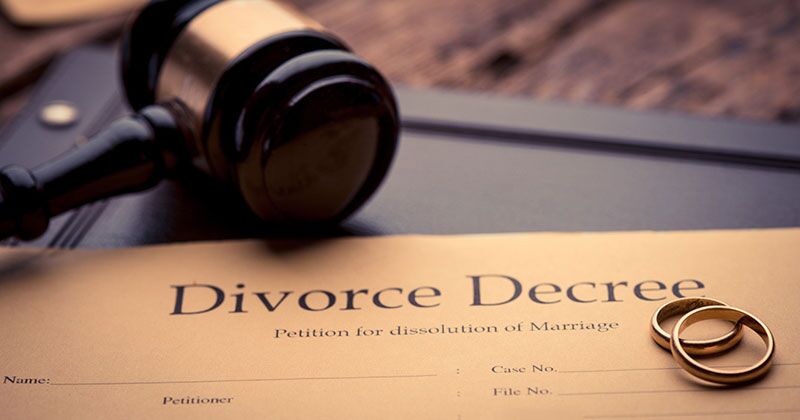How to Get a Divorce in Thailand for Foreigners
Divorce is an emotional and painful process, and resolving it in a foreign country like Thailand can add to the stress. Dealing with an unfamiliar legal system, cultural differences, and mountains of paperwork can leave you feeling overwhelmed and unsure of what to do next.
But there’s some good news. Handling the process carefully can make things smoother and less stressful, and taking clear and thoughtful steps can help reduce costs and allow you to focus on beginning the next chapter of your life. This page will explain what foreigners need to know about divorce in Thailand and how to navigate the laws and procedures involved so you can make informed decisions about how to move forward.
Thailand Divorce Law Basics
If you’re a foreigner in Thailand, divorce can come with its own set of unique hurdles. The process often depends on where your marriage was registered and whether both spouses agree to the separation.
For marriages registered in Thailand, your options are an uncontested or contested divorce, depending on your circumstances. If your marriage was registered abroad, however, additional legal steps may be necessary to dissolve it under Thai law.
The Two Kinds of Divorce in Thailand
There are two types of divorce, uncontested and contested. An uncontested divorce, also called an administrative divorce, is the simpler option. Both spouses mutually agree to separate on all terms, including property division, child custody, and alimony. If there’s an agreement, the process can be finalized quickly at the local district office (Amphoe) without the need for court proceedings.
A contested divorce, on the other hand, happens when the spouses cannot reach an agreement. This type of divorce requires filing a case in court and may involve multiple hearings, evidence submissions, and legal representation. Contested divorces take more time and money, but they’re often necessary when one spouse refuses to cooperate or disputes arise over assets or children.
Can Foreigners Get Divorced in Thailand?
Yes, you can get divorced in Thailand as a foreigner, but the process depends on where your marriage was registered and your specific circumstances. If your marriage was registered in Thailand, you can file for either an uncontested or contested divorce, provided you meet the legal requirements. For an uncontested divorce, both you and your spouse must go to the Amphoe together to sign the divorce agreement.
If your marriage was registered outside Thailand, you may need to go through court proceedings to get divorced, even if both you and your spouse agree. You’ll also need to check if your home country will legally recognize a divorce finalized in Thailand, as not all countries do. Skipping these steps could lead to major problems, like an invalid divorce or unresolved disputes over custody and property.
How to File for Divorce in Thailand
Divorce in Thailand can feel like a lot to handle, but knowing your options makes it easier to take the next step. Whether you and your spouse are on good terms or not, understanding how the process works can take away some of the uncertainty.
Filing an Uncontested Divorce
If both spouses can agree on all terms such as dividing property, child custody, and financial support, an uncontested divorce is the easiest option in Thailand. This type of divorce is handled at the Amphoe, where the marriage was originally registered. Both spouses need to be present and provide the required documents, including their marriage certificate and identification.
The main benefit of an uncontested divorce is that it’s quicker and more affordable compared to other options. However, if you and your spouse can’t agree on all issues beforehand, unresolved matters can lead to disputes that might turn into a contested divorce. If your marriage wasn’t registered in Thailand, this option may not be available, and you may need to prepare for court proceedings instead.
Filing a Contested Divorce
If you and your spouse can’t agree on the terms of your divorce, a contested divorce is the next step. This involves filing a case with the Family Court, where you’ll need to provide evidence to support your claims such as proof of adultery, abandonment, or other grounds for divorce recognized under Thai law. Both spouses are required to attend court hearings, and having legal representation is highly recommended, especially if you don’t speak fluent Thai.
Contested divorces often take more time and can be costly due to lawyer fees, but without solid evidence gathered by your attorney or proper legal guidance, you risk losing your case. This could mean important issues like child custody, property division, and financial support might not be decided in your favor.
Thai Divorce Law
There are several key components of divorce laws in Thailand that you should first understand before proceeding with a legal separation.
Divorce Agreements in Thailand
The basis of any divorce in Thailand is the divorce agreement, an important document that lays out the terms of your separation. It addresses crucial matters such as child custody, visitation, alimony, and the division of marital assets. For an uncontested divorce, both you and your spouse must sign the agreement and submit it to the local district office. In a contested divorce, the court will examine the agreement to confirm it is fair and follows Thai law.
Skipping a thorough divorce agreement can cause disputes over unresolved issues, potentially dragging you and your ex-partner back to court. This can mean higher costs, added stress, and more time spent on a process you’re likely eager to put behind you. Taking the time to create a clear agreement upfront with the assistance of an experienced divorce lawyer can save you trouble and make the separation much smoother.
Prenuptial Agreements in Thailand
A prenuptial agreement is a legal document you and your partner sign before getting married to decide how property and assets will be divided if you ever divorce. In Thailand, it has to be registered at the same time as your marriage to make sure it’s legally binding.
If you don’t register it, the agreement won’t hold up, and your assets could end up being split arbitrarily under Thai law. This could leave you facing major financial losses, especially if there’s a lot at stake. Taking the time to register it properly can save you from unnecessary complications later on.
Foreign prenups may or may not hold up in Thai courts; ask your divorce lawyer for assistance with this matter.
Thai Divorce Court Proceedings
When you and your spouse can’t agree on the terms of your divorce, the case goes to the Family Court. In contested divorces, both sides need to present evidence and arguments to back up their claims and argue for their desired outcome. The court will then decide on important matters like child custody, property division, and spousal support based on what’s presented.
These proceedings can take a long time, cost a lot, and be emotionally exhausting. If you don’t provide strong evidence or follow the court’s rules, you could end up with decisions that don’t work in your favor. Working with an experienced family lawyer can help protect your interests and guide you through the process.
Why You Need a Reliable Family Lawyer to Help with Your Divorce
Divorce in Thailand can be tough, especially if you’re not familiar with the local laws and procedures. Having a dependable Thai family lawyer by your side can make all the difference, helping you meet the legal requirements and avoid expensive mistakes. Whether it’s a contested or uncontested divorce, professional legal support can turn a stressful process into a more manageable one.
Without proper guidance, you could make serious errors, like submitting incomplete paperwork, misinterpreting your rights, or mishandling negotiations over assets and custody. These mistakes can cause delays, lead to unfavorable decisions, or even cost you financially. An experienced lawyer will guide you through the legal process, protect your rights, and help you achieve a fair result.
Get Professional Help with Your Divorce in Thailand
Going through a divorce in Thailand? Contact Siam Legal today for professional support. Our experienced family lawyers have been helping foreigners in Thailand get through tough divorces quickly and efficiently for over 20 years. Our team will walk you through each step, ensure your rights are protected, and handle all the required paperwork.
With decades of experience in family law, we’re here to help make this process smoother and secure the best possible outcome for your family. Let us take care of the details so you can focus on starting the next chapter of your life with peace of mind.
Thailand Divorce FAQ
What is the difference between administrative and court divorce in Thailand?
In Thailand, divorces are classified into two main types: administrative divorce and court divorce.
- Administrative Divorce: This type, often referred to as an uncontested divorce, is ideal when both spouses mutually agree to end the marriage without disputes over issues like child custody or property division. It’s a quicker process and is registered at the local district office. For this to proceed, both spouses must be present, and the marriage must be registered in Thailand or legally recognized under Thai law.
- Court Divorce: This contested process is used when spouses cannot agree on the terms of the divorce or when specific legal grounds for divorce must be proven. It requires filing a case in court, presenting valid reasons under Thai law, and going through legal proceedings. Compared to administrative divorce, this option takes more time and involves more detailed steps.
What are the requirements to register an administrative divorce in Thailand?
To register an administrative divorce in Thailand, you must meet the following requirements:
- Mutual Agreement: Both spouses must agree to the divorce, with no disputes regarding child custody, property division, or alimony.
- Presence of Both Spouses: Both individuals must appear in person at the district office where the marriage was originally registered or another authorized office.
- Marriage Registration: The marriage must have been registered in Thailand, at a Thai embassy or consulate abroad, or be legally recognized under Thai law.
- No Legal Representation: Attorneys or proxies are not allowed to act on behalf of either spouse; both parties must be physically present.
- Divorce Agreement Required: While a lawyer is not required to be present at the administrative divorce, a legally sound and fair divorce agreement is needed. This will need to be drafted by an experienced divorce lawyer and translated so that both parties can read it before it can be submitted to the district office.
What are the requirements to file for a court divorce?
To pursue a court divorce in Thailand, the following requirements must be met:
- Grounds for Divorce: The claimant must establish at least one of the 12 legal grounds for divorce, such as adultery, abandonment, or domestic violence.
- Disagreement or Special Circumstances: Court divorce is necessary in cases where:
- Spouses cannot agree on terms like custody or property division.
- The laws of one spouse’s home country do not permit uncontested divorce.
- Jurisdiction: At least one spouse must live in Thailand or meet the Thai courts’ jurisdiction requirements.
- Court Petition: A formal petition must be filed with the court, outlining the grounds for divorce and the desired outcomes.
- Representation: Either spouse can choose to have a lawyer represent them during the proceedings.
Do both parties need to be present in Thailand for a divorce?
Divorce proceedings in Thailand require different rules for physical presence, depending on whether it’s an administrative or court divorce. Here’s what you should know:
- Administrative Divorce: Both spouses are required to be physically present at the district office to sign and complete the divorce process. Legal representatives or powers of attorney are not permitted.
- Court Divorce: The spouse filing for divorce (the claimant) must appear in court. However, the other spouse can be represented by a lawyer if they are unable to attend in person.
How much does it cost to get a divorce in Thailand?
The cost of getting a divorce in Thailand depends on the type of divorce and the details of your case. Here’s a breakdown:
- Administrative Divorce (Uncontested Divorce): This is the most affordable option, as it only requires paying registration fees at the district office. Since there are no court proceedings or legal representation needed, the costs are minimal.
- Court Divorce (Contested Divorce): This option is more expensive due to court fees, lawyer costs, and other administrative expenses. The total cost depends on:
- The complexity of the case such as disagreements over custody, alimony, or property.
- The lawyer’s fees, which vary based on their experience and the time required for the case.
- Additional expenses for documentation, translations, or consultations, especially in cases involving foreign nationals or international couples.
Do You Need a Divorce Lawyer in Thailand?
Hiring a divorce lawyer in Thailand is highly recommended. The legal process in Thailand can be confusing, especially if you’re unfamiliar with the language or local laws. A lawyer will protect your rights and handle the process smoothly.
Without legal support, you risk missing important steps, failing to meet requirements, or agreeing to unfair terms because of a lack of information. This can lead to serious problems, such as losing custody of your children, receiving an unfair share of property, or facing delays in completing your divorce. A skilled lawyer will guide you through the process and provide the support you need during this challenging time.
LEAVE US A MESSAGE
Send a message directly to a Thai Divorce Lawyer




































